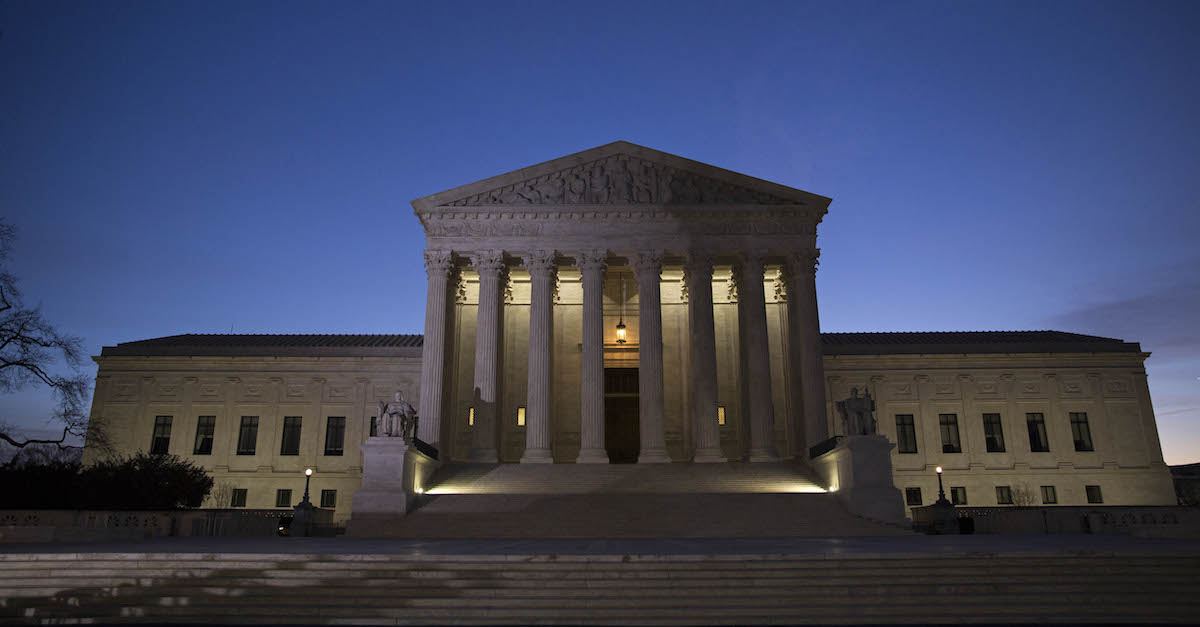
A federal prisoner has been executed in the United States for the first time in 17 years.
Daniel Lewis Lee, who served more than 23 years on death row, was pronounced dead by lethal injection of pentobarbital early Tuesday. Lee’s execution came hours after the Supreme Court sided with William P. Barr, in a 5-4 overnight decision, vacating a preliminary injunction that was issued by U.S. District Judge Tanya S. Chutkan in the District of Columbia.
“This morning, in the first federal execution in 17 years, Daniel Lewis Lee was executed by lethal injection at FCI Terre Haute in accordance with a death sentence imposed by a federal district court in 1999. Lee, a member of a white supremacist organization, brutally murdered William Frederick Mueller and Nancy Ann Mueller, along with her eight-year-old daughter, Sarah Elizabeth Powell,” Barr said in a statement. “After robbing and shooting them with a stun gun, Lee duct-taped plastic bags around their heads, weighed down each victim with rocks, and drowned the family in the Illinois bayou. On May 4, 1999, a jury in the U.S. District Court for the Eastern District of Arkansas found Lee guilty of numerous offenses, including three counts of murder in aid of racketeering, and he was sentenced to death.”
“Today, Lee finally faced the justice he deserved,” the attorney general continued. “The American people have made the considered choice to permit capital punishment for the most egregious federal crimes, and justice was done today in implementing the sentence for Lee’s horrific offenses.”
Judge Chutkan had issued the injunction on the grounds that the federal government’s execution method — injection of pentobarbital sodium — could constitute “cruel and unusual punishment” by causing “extreme pain and needless suffering.”
Five Supreme Court Justices disagreed, stating that the drug “is widely conceded to be able to render a person fully insensate” and does not have the risks “of pain that some have associated with other lethal injection protocols.” The Supreme Court observed that pentobarbital sodium has “been repeatedly invoked by prisoners as a less painful and risky alternative to the lethal injection protocols of other jurisdictions.”
The plaintiffs — Lee and three other death row inmates Barr announced the Bureau of Prisons would execute in July and August — cited experts to suggest pentobarbital causes “flash pulmonary edema,” a “form of respiratory distress that temporarily produces the sensation of drowning or asphyxiation.” Barr produced competing expert opinion, however, “indicating that any pulmonary edema occurs only after the prisoner has died or been rendered fully insensate.”
Justice Stephen Breyer dissented, stating that “the resumption of federal executions promises to provide examples that illustrate the difficulties of administering the death penalty consistent with the Constitution.” Justice Breyer noted that Lee’s co-defendant in his capital case was sentenced to life imprisonment for the same crime.
In a separate dissent, Justice Sonya Sotomayor, joined by Justice Ruth Bader Ginsburg and Elena Kagan, warned that the Court set a “dangerous precedent” by its hasty acceptance of “the Government’s artificial claim of urgency to truncate ordinary procedures of judicial review.”
“In its hurry to resolve the Government’s emergency motions, I fear the Court has overlooked not only its prior ruling, but also its role in safeguarding robust federal judicial review,” Justice Sotomayor wrote.
Sotomayor referred to the Supreme Court’s order seven months ago in the same case. which prohibited the federal government from proceeding with executions “before the Court of Appeals could address respondents’ different, but equally serious statutory challenge to the federal execution protocol.”
In that opinion, the Court stated: “in light of what is at stake, it would be preferable for the District Court’s decision to be reviewed on the merits by the Court of Appeals for the District of Columbia Circuit before the executions are carried out.”
“These statements now ring hollow,” Justice Sotomayor wrote.
[Image via Drew Angerer/Getty Images]